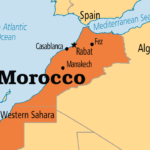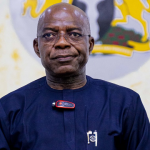The Nigerian Content Development and Monitoring Board approved 448 expatriate quota requests for foreign professionals in the oil and gas industry during the first half of 2025.
This reflects the continued involvement of foreign expertise even as the federal government intensifies efforts to boost indigenous participation.
According to official data, the board approved 246 expatriate slots in the first quarter and 202 in the second quarter. These permits allow foreign specialists to occupy roles where qualified Nigerian professionals are unavailable, particularly in technically complex areas such as offshore engineering, subsea operations, and digital geoscience.
The total EQ approvals for the first half of the year represent an 18 per cent decline compared to the 549 granted during the first three quarters of 2024. In addition to the EQs, 158 Temporary Work Permits were granted—111 in Q1 and 47 in Q2.
Meanwhile, the board rejected 319 expatriate quota applications, suggesting increased scrutiny of submissions. Only five TWP requests were turned down within the same period.
The NCDMB stated that every approval followed a comprehensive review process to confirm the lack of suitably qualified Nigerian candidates for the specified roles.
As the implementing agency of the Nigerian Oil and Gas Industry Content Development Act, the NCDMB reaffirmed that its decisions align with the national objective of increasing local content participation to 70 percent, up from the current 56 percent.
The issue of expatriate employment continues to generate debate. In March 2025, the Petroleum and Natural Gas Senior Staff Association of Nigeria challenged Sterling Oil over its engagement of foreign workers, accusing the company of breaching local content regulations.
The dispute, which also involved criticism of the Ministries of Labour and Interior for allegedly issuing as many as 11,000 permits to Indian nationals, was resolved after the company agreed to phase out the expatriates in favour of Nigerian personnel.
Concerns persist among industry stakeholders about overlapping authorities, with reports that multiple government agencies independently issue expatriate permits. Despite this, the NCDMB maintains that it remains the principal regulatory body responsible for content development in the sector.
Minister of State for Petroleum Resources (Oil), Heineken Lokpobiri, has consistently emphasized the need to grow local capacity in order to generate employment and retain economic value within Nigeria.
To reduce long-term reliance on foreign labour, the board has committed to stricter monitoring of EQs and enforcement of mandatory skill transfer programs.










